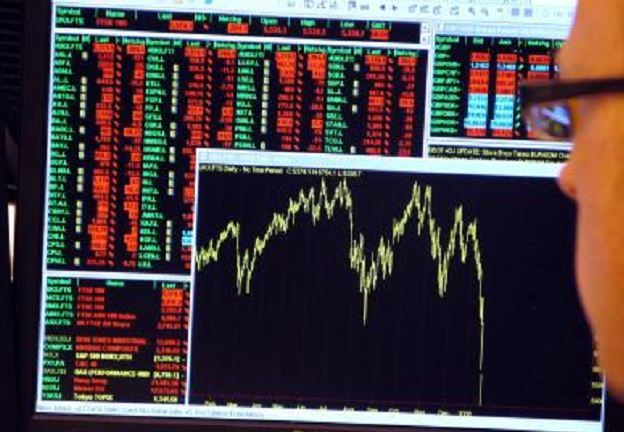
Oil traded near the lowest price in six years amid speculation the global glut that drove prices into a bear market will be prolonged.
Futures slid as much as 1.1 percent in New York, extending Monday’s 1.5 percent loss. U.S. crude stockpiles, more than 90 million barrels above the five-year seasonal average, decreased last week by the smallest amount this year, according to a Bloomberg survey before data due Wednesday. OPEC can’t halt the price slide on its own and needs producers outside the group to help in reducing supplies, Algeria’s energy minister said.
Oil has slumped more than 30 percent from the year’s closing peak in June amid signs that the glut will persist. The Organization of Petroleum Exporting Countries could boost output to a record 33 million barrels a day after sanctions on Iranian supply are removed, according to Iran’s OPEC representative.
“There has been no supply response yet,” Amrita Sen, chief oil analyst at consultants Energy Aspects Ltd. in London, said in a report. “Crude can potentially continue to head lower into the $30s.”
West Texas Intermediate for September delivery was at $41.69 a barrel on the New York Mercantile Exchange, down 18 cents, at 12:02 p.m. London time. The contract fell 63 cents to $41.87 on Monday, the lowest close since March 2009. The volume of all futures traded was about 13 percent below the 100-day average. Prices have decreased 22 percent this year.
U.S. Supplies
Brent for October settlement was 20 cents lower at $48.54 a barrel on the London-based ICE Futures Europe exchange. The contract slid 45 cents to $48.74 Monday. The European benchmark crude traded at a premium of $6.35 to WTI for the same month.
Crude stockpiles in the U.S., the world’s biggest oil consumer, probably shrank by 820,000 barrels in the week to Aug. 14, according to a Bloomberg survey before an Energy Information Administration report on Wednesday. That will be the smallest decline this year, according to EIA data.
U.S. Senate Foreign Relations Committee Chairman Bob Corker said he opposes the nuclear agreement with Iran, arguing it won’t end the country’s enrichment program.
If lawmakers pass a resolution of disapproval — the likely outcome in the Republican-led House and Senate — President Barack Obama has said he will veto it. The White House is counting on having enough Democrats in support of the Iran deal to sustain a veto, which would stand unless two-thirds of Congress votes to override it.
Global Surplus
The global market faces a surplus of about 3 million barrels a day, Iran’s state-run Islamic Republic News Agency reported Aug. 16, citing the nation’s OPEC representative Mehdi Asali. A supply cut by the 12-member group alone can’t guarantee a return to oil market stability, Algeria’s Salah Khebri said at an event in Algiers, according to Liberte newspaper.
Earlier this month Khebri suggested an OPEC emergency meeting to address the price decline, an idea that drew supportive comments from Libya and Venezuela. Saudi Arabia, the organization’s biggest member, gave no public response on the matter.